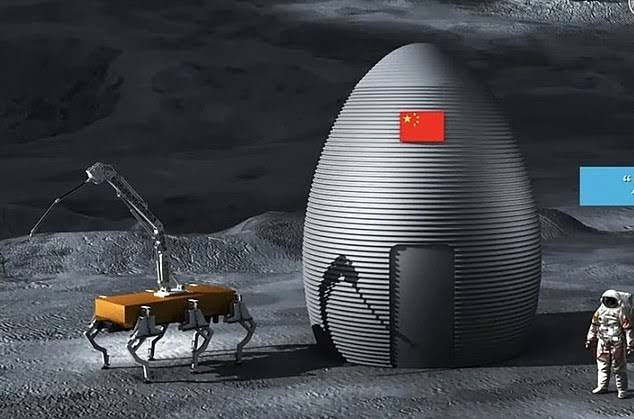China’s ambitious plans to establish a lunar base within the next five years represent a significant milestone in the global space exploration arena. The initiative, as reported by Chinese media, underscores the nation’s commitment to advancing its space capabilities and expanding human presence beyond Earth.
Key to China’s lunar base vision is the utilization of lunar soil as a primary resource for construction. By leveraging indigenous materials, such as regolith, China aims to overcome logistical challenges associated with transporting building materials from Earth, thereby reducing costs and increasing sustainability. The proposed use of a specialized robot, dubbed the “Chinese Super Masons,” highlights China’s innovative approach to lunar construction technology. This robot, designed to autonomously produce bricks from lunar soil, represents a crucial step towards realizing the vision of a habitable lunar outpost.
Furthermore, China’s strategic timeline, including the Chang’e-8 mission around 2028 and the planned return of lunar soil from the far side of the moon by 2025, underscores the nation’s methodical approach to lunar exploration and base construction. By incrementally advancing its capabilities and gathering essential data from previous missions, China is positioning itself as a leading player in lunar exploration.
The significance of establishing a lunar base extends beyond mere scientific curiosity. Indeed, as highlighted by Ding Lieyun and other experts at the Extraterrestrial Construction Conference in Wuhan, a lunar habitat holds immense potential for enabling long-term human exploration and habitation of the moon. By establishing a research station on the lunar surface, China aims to lay the groundwork for sustained lunar missions, potentially paving the way for future crewed missions to Mars and beyond.
Moreover, China’s commitment to international collaboration, as evidenced by its participation in conferences such as the one at Huazhong University of Science and Technology, signals a willingness to engage with the global space community in pursuit of common goals.
China’s plans to build a lunar base within the next five years represent a bold step towards expanding humanity’s presence in space, showcasing the nation’s technological prowess, strategic vision, and collaborative spirit in the pursuit of unlocking the mysteries of the cosmos.


